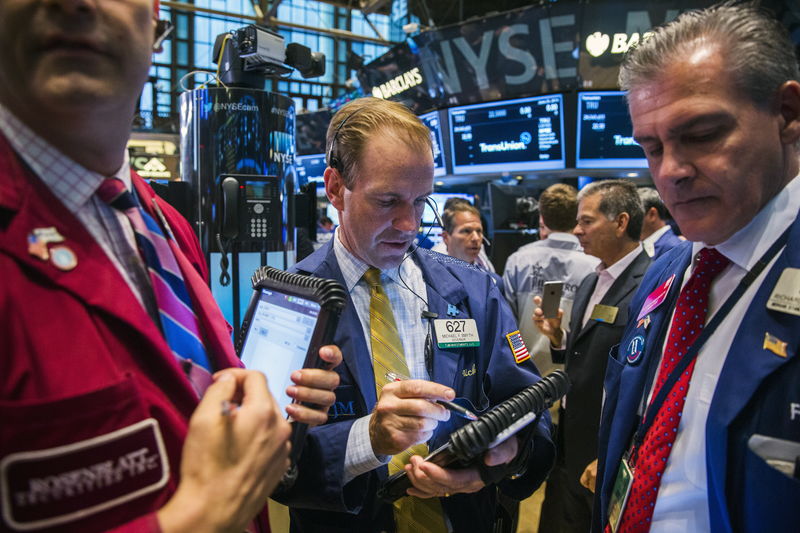By Ryan Vlastelica
NEW YORK (Reuters) - The S&P 500 closed flat on Friday but ended lower for the week, with investors cautious ahead of a meeting in Europe that could decide whether Greece will default on critical loans.
The Dow closed higher, boosted by strong results from component Nike Inc (N:NKE), while the Nasdaq ended solidly lower on disappointing results from Micron Technology Inc (O:MU), which weighed on chipmakers like Intel.
In Europe, Greece rejected a five-month extension of bailouts on Friday, a day before euro zone finance ministers will meet to decide the country's fate. Greece needs fresh funds to avoid defaulting on a $1.8 billion debt repayment to the International Monetary Fund on June 30. If it defaults, it may have to leave the euro or the European Union, potentially shaking the region's economic foundations.
"If this issue gets resolved, then we're set up for a fairly decent market, but it could be that everything falls apart on the 30th," said James Meyer, chief investment officer at Tower Bridge Advisers in West Conshohocken, Pennsylvania. "Market valuation is high in an absolute sense."
Nike (N:NKE) rose 4.3 percent to $109.71 and was the biggest boost to the Dow after reporting a better-than-expected quarterly profit, lifted as it sold more high-margin shoes and apparel at higher prices.
Micron Technology (O:MU) sank 18 percent to $19.66 a day after forecasting a further decline in prices of chips used in personal computers. It also gave a revenue outlook for the current quarter that was well below market estimates. The PHLX Semiconductor index (SOX) fell 2.4 percent. Intel Corp (O:INTC) fell 3 percent to $31.02.
In the latest economic data, University of Michigan's final reading on the overall index on consumer sentiment for June was 96.1, higher than the preliminary reading of 94.6.
Investors have been keeping a keen eye on data to see if the U.S. economy has recovered from a slow start at the beginning of the year. The Federal Reserve has said it remains data dependent and expects to raise rates when it sees a sustained rebound in the economy.
The Dow Jones industrial average (DJI) rose 56.72 points, or 0.32 percent, to 17,947.08, the S&P 500 (SPX) lost 0.71 points, or 0.03 percent, to 2,101.6 and the Nasdaq Composite (IXIC) dropped 31.69 points, or 0.62 percent, to 5,080.51.
For the week, both the Dow and S&P 500 fell 0.4 percent while the Nasdaq fell 0.7 percent.
Declining issues outnumbered advancing ones on the NYSE by 1,752 to 1,334, for a 1.31-to-1 ratio on the downside; on the Nasdaq, 1,647 issues fell and 1,152 advanced for a 1.43-to-1 ratio favoring decliners.
The benchmark S&P 500 index was posting 16 new 52-week highs and 21 new lows; the Nasdaq Composite was recording 137 new highs and 62 new lows.
About 6.17 billion shares traded on all U.S. platforms, according to BATS exchange data, compared with the month-to-date average of 6.09 billion.

Friday's volume was impacted as the FTSE Russell rebalanced its indexes. As companies move from one index to another, managers of index-following funds are forced to buy or sell shares to mimic the performance of the index.